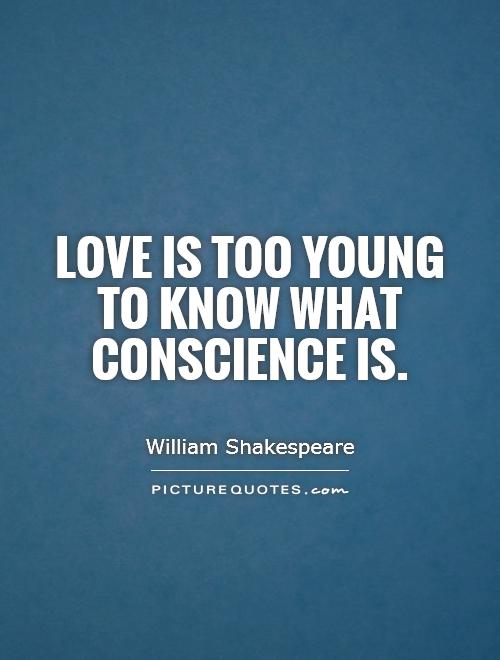Love is too young to know what conscience is

Love is too young to know what conscience is
In William Shakespeare's famous sonnet 151, he writes, "Love is too young to know what conscience is." This line encapsulates the idea that love, particularly young love, is often impulsive and irrational, lacking the moral compass that comes with experience and maturity.Shakespeare was a master at exploring the complexities of human emotions, and in this sonnet, he delves into the tumultuous nature of love. The idea that love is "too young" suggests that it is naive and inexperienced, unable to fully comprehend the consequences of its actions. Love, in its youthful exuberance, often acts without considering the moral implications of its choices.
The concept of conscience is closely tied to morality and ethics, guiding individuals to make decisions that are in line with their values and beliefs. However, Shakespeare suggests that love operates outside the realm of conscience, driven by passion and desire rather than rational thought. Love, in its purest form, is a force that transcends logic and reason, leading individuals to act in ways that may not align with their moral principles.
Shakespeare's exploration of love in this sonnet highlights the complexities of human relationships and the often conflicting emotions that accompany them. Love, with its ability to both uplift and destroy, can lead individuals to make choices that defy their sense of right and wrong. In the throes of passion, individuals may act impulsively, disregarding the consequences of their actions in favor of following their hearts.
Overall, Shakespeare's assertion that "Love is too young to know what conscience is" speaks to the timeless nature of love and its ability to both inspire and confound. Love, with its ability to transcend reason and morality, remains a powerful force that continues to captivate and perplex us to this day.












 Friendship Quotes
Friendship Quotes Love Quotes
Love Quotes Life Quotes
Life Quotes Funny Quotes
Funny Quotes Motivational Quotes
Motivational Quotes Inspirational Quotes
Inspirational Quotes